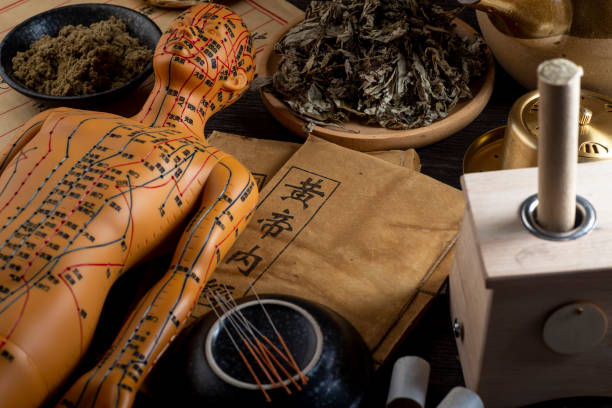Alternative Medicine Modalities for Primary Health Care: A Primer

In recent years, there has been growing interest in alternative medicine modalities as complementary options to conventional primary health care. These modalities encompass a wide range of practices and treatments, often rooted in traditional systems of medicine from various cultures around the world.
While they may offer unique approaches to health and wellness, it is critical to assess their efficacy and safety within the context of primary care. This article evaluates some prominent alternative medicine modalities, shedding light on their principles, potential benefits, and considerations for integration into primary healthcare settings.
Methylene Blue: A Potential Adjunct in Primary Health Care
Methylene blue—a diagnostic dye—shows therapeutic promise in primary health care with antioxidant, anti-inflammatory and neuroprotective properties. Research suggests its potential in managing neurodegenerative diseases, mood disorders, and infections and as adjunctive therapy (for conditions like Alzheimer’s and Parkinson’s diseases, depression and sepsis). While it offers benefits, caution is advised due to potential interactions and rare side effects like serotonin syndrome and hemolytic anemia. Further research is needed to optimize dosing, safety, and its role in primary care practice; to read more, this guide provides an overview.
Acupuncture: Ancient Wisdom Meets Modern Science
Originating from traditional Chinese medicine, acupuncture involves the insertion of thin needles into specific points on the body to stimulate energy flow and promote healing. Despite initial skepticism, numerous studies have demonstrated acupuncture’s effectiveness in managing various conditions, including chronic pain, migraines and anxiety. Its integration into primary care can offer patients additional pain relief options while minimizing reliance on pharmaceutical interventions.
Herbal Medicine: Harnessing Nature’s Remedies
Herbal medicine utilizes plants and plant extracts to prevent and treat illness, drawing upon centuries-old knowledge passed down through generations. While scientific research on specific herbal remedies varies in quality and consistency, certain herbs have shown promise in addressing common health concerns such as digestive issues, inflammation and immune support. Integrating herbal medicine into primary care requires careful consideration of herb-drug interactions and the importance of standardized dosing and quality control.
Mind-Body Therapies: Nurturing Harmony Within
Mind-body therapies encompass a diverse range of practices, including meditation, yoga, tai chi and biofeedback which emphasize the connection between mental and physical well-being. These modalities have gained recognition for their ability to reduce stress, improve sleep quality and enhance overall resilience. Integrating mind-body therapies into primary care can empower patients to actively participate in their health management, promoting holistic wellness beyond symptom management alone.
Chiropractic Care: Aligning the Body for Optimal Function
Chiropractic care focuses on the diagnosis and treatment of musculoskeletal disorders, primarily through manual adjustments to the spine and other joints. While chiropractic interventions are commonly sought for back pain and neck pain, research suggests they may also benefit individuals with headaches, osteoarthritis and certain types of sports injuries. Collaboration between chiropractors and primary care providers can facilitate comprehensive care plans that address both structural imbalances and underlying health issues.
Traditional Chinese Medicine: Balancing Yin and Yang
Traditional Chinese medicine encompasses a holistic approach to health that emphasizes restoring balance and harmony within the body. Modalities such as herbal medicine, acupuncture, qigong, and dietary therapy are tailored to individual constitutions and patterns of disharmony. While some aspects of traditional Chinese medicine may seem esoteric to Western audiences, its integration into primary care can offer culturally sensitive and personalized treatment options for a diverse patient population.
Ayurveda: The Science of Life
Originating from ancient India, Ayurveda is a holistic system of medicine that focuses on balancing the body, mind and spirit to promote longevity and vitality. Ayurvedic therapies often include dietary modifications, herbal remedies, detoxification practices and lifestyle recommendations based on individual doshas or body types. Integrating Ayurveda into primary care requires a nuanced understanding of its principles and practices, in addition to consideration of potential cultural barriers and safety concerns associated with certain herbal preparations.
Holistic Nutrition: Nourishing the Body from Within
Holistic nutrition emphasizes the importance of whole foods, nutrient-dense eating patterns, and mindful eating practices for optimal health and well-being. While conventional primary care often focuses on treating symptoms with medication, holistic nutrition addresses underlying imbalances and promotes preventive health through dietary interventions. Integrating holistic nutrition into primary care involves education, counseling and support to empower patients to make informed food choices that align with their health goals and values.
Conclusion
Alternative medicine modalities offer diverse approaches to primary health care, complementing conventional treatments with holistic and patient-centered approaches. While research continues to elucidate their efficacy and safety profiles, integration into primary care settings requires collaboration, open communication and evidence-based practice. By expanding the scope of available treatment options and fostering a more comprehensive understanding of health and wellness, alternative medicine modalities have the potential to enhance the quality of primary care and promote holistic well-being for individuals and communities alike.





